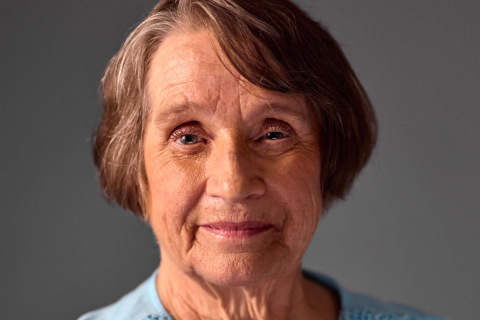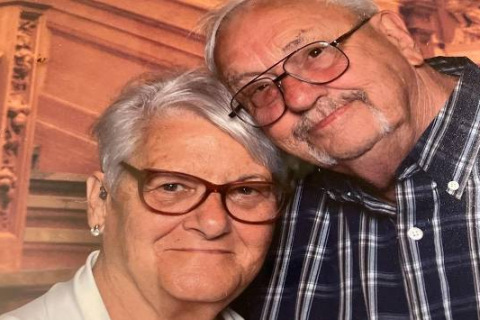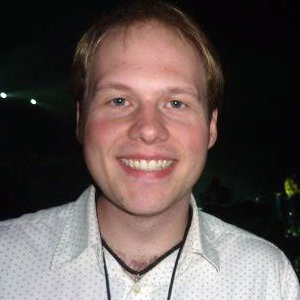Nurse and Survivor: Overcoming Breast Cancer and Mesothelioma
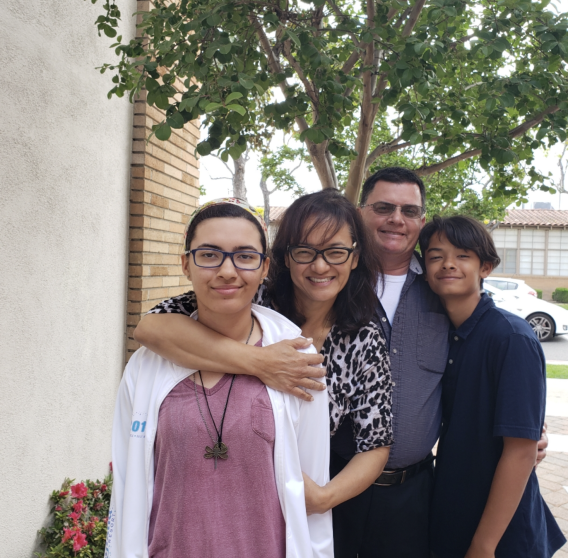
Written by Travis Rodgers | Edited by Amy Edel | Last Update: 10/24/2024 | 5 Min Read
Kim Madril loves helping others. She made a career of taking care of people as a nurse, but her own surprising diagnosis of mesothelioma forced her to pause her career to focus on her own well-being.
“Mesothelioma shortened my nursing career unfortunately,” Madril told The Mesothelioma Center. “Because of my diagnosis, I didn’t feel I was in a position to take care of patients like I used to. I didn’t feel that I had the stamina because I put my heart and soul into my nursing career.”
Before her mesothelioma diagnosis Madril was leading a normal life. She’s a mother of two children and a wife. And she was working in a career she enjoyed. She also took up running as a hobby and at the age of 50 began running half-marathons.
Exposed to Asbestos at School
The majority of people diagnosed with mesothelioma are older and were exposed to asbestos while working in high-risk occupations in the military, construction, manufacturing or as first responders. Madril said she doesn’t fit the mold as the standard mesothelioma patient.
“I’m not the typical mesothelioma patient. I don’t fit the profile,” she notes. “I remember my reaction distinctly when I found out how I was exposed to asbestos. It was surprise. It was disbelief. It was shock. It kind of stopped me dead in my tracks to be honest with you.”
Madril’s asbestos exposure occurred in her junior high and high school classrooms when she was a teenager. She was exposed to asbestos in art class, ceramics class and automotive shop class. The U.S. Environmental Protection Agency estimates asbestos can be found in most elementary, middle and high schools in the country.
“When I went to see a mesothelioma expert and was sitting in the waiting room, they called my name and I didn’t stand up right away. She repeated it, so I stood up and she just looked at me and then she kept looking around the room as if I wasn’t there,” Madril recounted. “I said, ‘It’s me,’ and she said, ‘What? You’re Kim Madril?’ And I said, ‘Yes, that’s me.’ I saw it in her face. She couldn’t believe that I’m the meso patient.”
Managing Breast Cancer and Mesothelioma
Just four months before being diagnosed with mesothelioma, Madril was also diagnosed with breast cancer. She underwent a lumpectomy to successfully remove the cancer, which was isolated. But her medical insurance wouldn’t cover the expenses that accompanied her mesothelioma treatment. Unable to continue working as a nurse, the high cost of cancer treatment was a considerable obstacle.
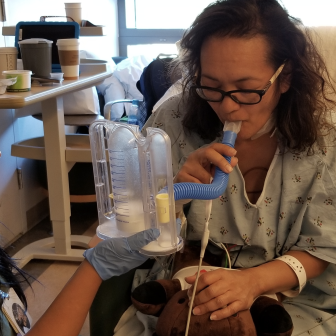
“I mean, as strong as I think I am, the reality for me, there were many times when I was just like, ‘Okay, let me just get through the day’ without fatigue or vomiting. I couldn’t work during treatment and recovery,” Madril shared. “And the surgical bill, anesthesia and hospital stay alone for one week with the surgery was $160,000. The radiation treatment was $30,000, I think.”
After talking to thoracic surgeon Dr. Abraham Lebenthal in Boston, Madril decided to consider getting financial help through compensation. She said it helped put her in a position financially, emotionally and mentally, eliminating some of the stress and allowing her to focus on recovery.
“Getting compensation was the best decision ever. I’m so happy I did it. It softens the blow knowing I have resources because medical insurance doesn’t cover everything,” she said. “If I didn’t have that compensation, I’d have been in debt for the rest of my life.”
Surviving a Rare Disease
After going through both breast cancer and mesothelioma within such a short span of time, Madril shared that there are key differences between receiving each diagnosis. She said they’re completely different ballgames.
“There’s all kinds of support, walks, fundraisers, organizations and educational information out there for breast cancer,” she observed. “Whereas mesothelioma is so rare. There’s not a lot out there, so I felt at a loss really. I felt isolated because there’s no cure for mesothelioma and the community is small.”
With only approximately 3,000 people diagnosed with mesothelioma each year, Madril said survivors can struggle to find community. She emphasized the importance of finding mesothelioma-specific support groups.
Living Life to the Fullest
Madril said she’s appreciative of her improvement. She reports that she’s already been able to do things she wasn’t sure she’d be able to experience after being diagnosed with mesothelioma.
“I saw my kid graduate from high school,” she said. “I’m so glad that I’m not suffering like I did initially – that I’m better.”
Madril said everything she’s gone through has changed her outlook on life. It’s taught her to enjoy each and every day.
“You’re almost grateful for what you have. I’m grateful that I am still here. I am so happy that I’m still here. Embrace the moment,” she advised. “I’m at the point in my life where things that might have bothered me before don’t. I think, ‘Oh, well. That’s certainly not as bad as going through radiation. It’s certainly not as bad as having surgery.’”

